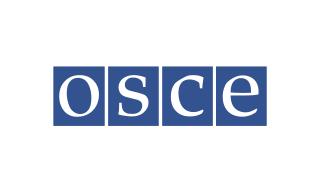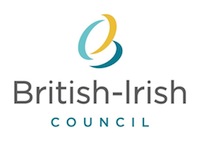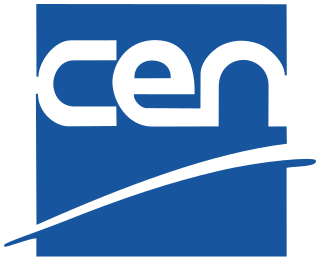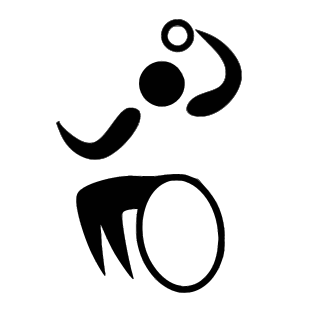
The European Council is a collegiate body that defines the overall political direction and priorities of the European Union. The European Council is part of the executive of the European Union (EU), beside the European Commission. It is composed of the heads of state or government of the EU member states, the President of the European Council, and the President of the European Commission. The High Representative of the Union for Foreign Affairs and Security Policy also takes part in its meetings.

The North Atlantic Treaty Organization, also called the North Atlantic Alliance, is an intergovernmental military alliance between 31 member states – 29 European and two North American. Established in the aftermath of World War II, the organization implemented the North Atlantic Treaty, signed in Washington, D.C., on 4 April 1949. NATO is a collective security system: its independent member states agree to defend each other against attacks by third parties. During the Cold War, NATO operated as a check on the threat posed by the Soviet Union. The alliance remained in place after the dissolution of the Soviet Union and the Warsaw Pact and has been involved in military operations in the Balkans, the Middle East, South Asia, and Africa. The organization's motto is animus in consulendo liber.

The Organization for Security and Co-operation in Europe (OSCE) is a regional security-oriented intergovernmental organization comprising member states in Europe, North America, and Asia. Its mandate includes issues such as arms control, the promotion of human rights, freedom of the press, and free and fair elections. It employs around 3,460 people, mostly in its field operations but also in its secretariat in Vienna, Austria, and its institutions. It has observer status at the United Nations.

The United Nations Security Council (UNSC) is one of the six principal organs of the United Nations (UN) and is charged with ensuring international peace and security, recommending the admission of new UN members to the General Assembly, and approving any changes to the UN Charter. Its powers as outlined in the United Nations Charter include establishing peacekeeping operations, enacting international sanctions, and authorizing military action. The UNSC is the only UN body with authority to issue resolutions that are binding on member states.

Vienna is the capital, largest city, and one of nine federal states of Austria. Vienna is Austria's most populous city and its primate city, with about two million inhabitants, and its cultural, economic, and political center. It is the sixth-largest city proper by population in the European Union and the largest of all cities on the Danube river by population.

The Shanghai Cooperation Organisation (SCO) is a Eurasian political, economic, international security and defence organization established by China and Russia in 2001. It is the world's largest regional organization in terms of geographic scope and population, covering approximately 80% of the area of Eurasia, 40% of the world population. As of 2021, its combined GDP was around 20% of global GDP.

Vienna Airport is an international airport of Vienna, the capital of Austria, located in Schwechat, 18 km (11 mi) southeast of central Vienna and 57 kilometres (35 mi) west of Bratislava, the capital of Slovakia. The Austrian Aeronautical Information Publication calls the airport the Wien-Schwechat Airport in English. It is the country's largest airport and serves as the hub for Austrian Airlines as well as a base for low-cost carriers Ryanair and Wizz Air. It is capable of handling wide-body aircraft up to the Airbus A380. The airport features a dense network of European destinations as well as long-haul flights to Asia, North America and Africa.

The British–Irish Council is an intergovernmental organisation that aims to improve collaboration between its members in a number of areas including transport, the environment and energy. Its membership comprises Ireland, the United Kingdom, the devolved governments of Northern Ireland, Scotland and Wales, in addition to the governments of the British Crown Dependencies: Guernsey, Jersey and the Isle of Man. As England does not have a devolved administration, it is not individually represented on the council but only as a member of the United Kingdom.
The European Coalition for Just and Effective Drug Policies (ENCOD), originally European NGO Council On Drugs and development, is a network of European non-governmental organisations and citizens concerned with the impact of current international drug policies on the lives of the most affected sectors in Europe and the Global South. Since 1994 they have been working to advocate more just and effective drugs control policies, which include an integrated solution for all problems related to the global drugs phenomenon.

The European Committee for Standardization is a public standards organization whose mission is to foster the economy of the European Single Market and the wider European continent in global trading, the welfare of European citizens and the environment by providing an efficient infrastructure to interested parties for the development, maintenance and distribution of coherent sets of standards and specifications.

Alexander Van der Bellen is the current president of Austria. He previously served as a professor of economics at the University of Vienna, and after joining politics, as the spokesman of the Austrian Green Party.
The political status of Kosovo, also known as the Kosovo question, is the subject of a long-running political and territorial dispute between the Serbian government and the Government of Kosovo, stemming from the breakup of Yugoslavia (1991–92) and the ensuing Kosovo War (1998–99). In 1999, the administration of the Autonomous Province of Kosovo and Metohija was handed on an interim basis to the United Nations under the terms of UNSCR 1244 which ended the Kosovo conflict of that year. That resolution reaffirmed the territorial integrity of Serbia over Kosovo but required the UN administration to promote the establishment of 'substantial autonomy and self-government' for Kosovo pending a 'final settlement' for negotiation between the parties.
The Hungarians in Austria numbers 25,884 according to the 2001 Census. Of these, 10,686 were in Vienna and 4,704 in Burgenland. The total number of Hungarian-speakers is estimated at around 40,000, with 6,600 in Burgenland. Most of the Burgenland Hungarians live near the two district capitals of Oberwart/Felsőőr and Oberpullendorf/Felsőpulya. The Hungarian Group Advisory Council is the oldest of the official minority advisory councils in Austria.

The Eurovision Song Contest 2015 was the 60th edition of the Eurovision Song Contest. It took place in Vienna, Austria, following the country's victory at the 2014 contest with the song "Rise Like a Phoenix" by Conchita Wurst. Organised by the European Broadcasting Union (EBU) and host broadcaster Österreichischer Rundfunk (ORF), the contest was held at the Hall D of the Wiener Stadthalle and consisted of two semi-finals on 19 and 21 May, and a final on 23 May 2015. The three live shows were presented by Austrian television presenters Mirjam Weichselbraun, Alice Tumler and Arabella Kiesbauer, while the previous edition's winner Conchita Wurst acted as the green room host.

The Euro summit is the meeting of the heads of state or government of the member states of the eurozone. It is distinct from the EU summit held regularly by the European Council, the meeting of all EU leaders.
The Vienna Document is a series of agreements on confidence and security-building measures between the states of Europe, starting in 1990, with subsequent updates in 1992, 1994, 1999 and 2011. The Vienna Document 2011 was adopted by 57 Organization for Security and Co-operation in Europe (OSCE) participating states, including the states of Central Asia and Russia. It described its zone of application (ZOA) as "the whole of Europe, as well as the adjoining sea area and air space".
Events in the year 1993 in the European Union.

Gernot Blümel is an Austrian politician of the Austrian People's Party (ÖVP). He served as Austria's finance minister from 2020 to 2021, having announced his resignation shortly after Alexander Schallenberg's resignation on December 2, 2021. Since 2015, he has been the chairman of the Vienna branch of the ÖVP. Prior, he was Chancellery minister for European Affairs, Art, Culture, and Media from 2017 to 2019; he was also General Secretary of the ÖVP from 2013 to 2015.

Wheelchair handball is handball played by people with varying physical disabilities that disqualify them from playing an able-bodied sport. These include spina bifida, birth defects, cerebral palsy, paralysis due to accident, amputations, and many other disabilities. The IHF Wheelchair Handball World Championship (IHF) is the governing body for this sport. It is recognized by the International Paralympic Committee (IPC) as the sole competent authority in wheelchair handball worldwide.

















